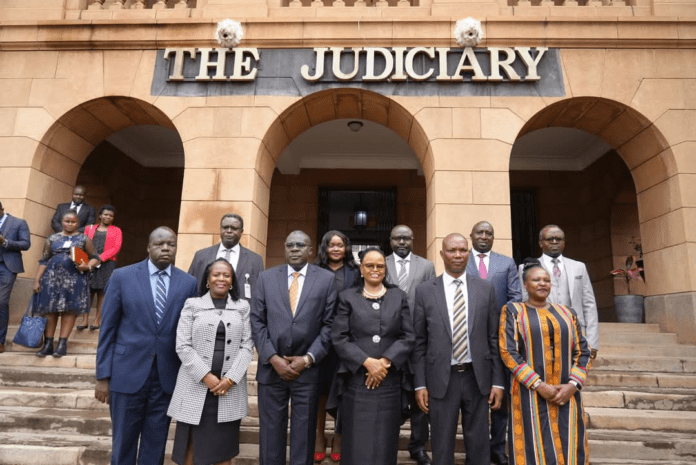A coalition of foreign envoys from major diplomatic missions in Kenya has issued a statement on the newly appointed leadership of the Independent Electoral and Boundaries Commission (IEBC), urging the government to uphold the commission’s independence and ensure proper funding ahead of the 2027 General Election.
In a joint communiqué released days after the swearing-in of IEBC Chairperson Erastus Ethekon and six commissioners, the envoys welcomed the appointments but stressed the importance of impartiality in the execution of their mandate.
“We welcome the appointment of the new Independent Electoral and Boundaries Commission (IEBC) chairperson and commissioners,” the statement read.
The envoys, representing countries including the United States, Germany, Canada, the Netherlands, Denmark, Ireland, Australia, Switzerland, Norway, Sweden, and Finland, called on Parliament and the National Treasury to prioritise adequate funding for the commission. They emphasised that a well-resourced IEBC is critical to maintaining its independence and operational efficiency.
The diplomats also underscored the need for inclusive voter registration efforts to ensure that every eligible Kenyan is given the opportunity to participate in future electoral processes.
“We stand ready, working in partnership, to further strengthen electoral systems and bolster public trust in Kenya’s democratic institutions,” they added.
Their comments come in the wake of concerns raised by the European Union Election Follow-up Mission, which in its final report highlighted delays in electoral reforms and lingering doubts about the independence of future commissions, particularly in relation to political interference.
The newly appointed commissioners, sworn in last Friday, face immense pressure with just two years to go until the 2027 polls. Among their immediate tasks is the organisation of 22 pending by-elections and the resumption of the Continuous Voter Registration (CVR) exercise.
Earlier this year, IEBC Deputy CEO Obadiah Keitany disclosed that the commission will require at least Ksh61 billion to manage the next general election. The legal department further explained that although Kenya has the capacity to produce election materials locally, mistrust among political players has led to the continued outsourcing of ballot papers—an option that significantly increases election costs.
As the countdown to 2027 begins, attention is now on the IEBC’s ability to restore confidence in the electoral process and deliver credible polls under the scrutiny of both local stakeholders and international partners.







